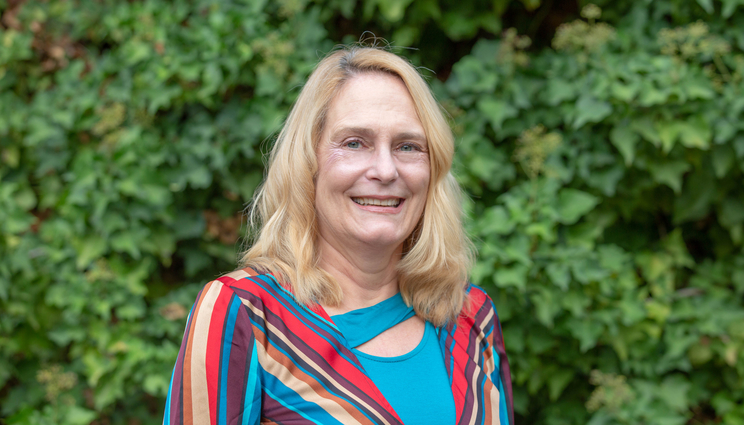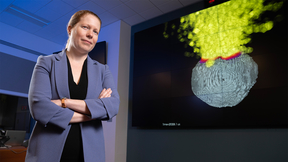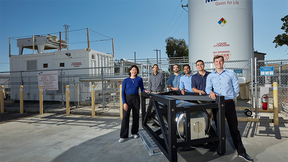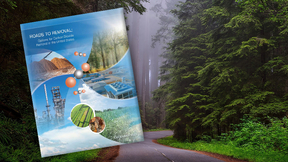Lab physicist to lead APS’ plasma physics division
 (Download Image)
(Download Image)
LLNL physicist Denise Hinkel was recently elected to lead the American Physical Society Division of Plasma Physics.
Lawrence Livermore National Laboratory (LLNL) physicist Denise Hinkel has been elected vice chair of the American Physical Society (APS) Division of Plasma Physics (DPP).
Her term as vice chair began last month and is the first step in a four-year leadership commitment with APS, which culminates with service as APS-DPP chair in year three. As vice chair, Hinkel will lead the fellowship committee. Following service as vice chair, she will serve as the chair elect, leading the program committee. Following service as chair, she will serve one final year advising the incoming leadership as past chair.
“This is an opportunity to make a difference,” Hinkel said. “There are ideas and process improvements that I would like to pursue. Also, this provides an opportunity to grow professionally while helping to improve the discipline.”
Hinkel brings deep expertise in plasma physics from her work at LLNL, where she is leading projects for the Inertial Confinement Fusion (ICF) program and also work on Weapon Physics and Design (WPD) projects. She is a group leader in the Design Physics Division and also is the Weapons and Complex Integration (WCI) directorate point of contact for Laboratory Directed Research and Development (LDRD) projects.
Hinkel has been a member of APS DPP since she was a graduate student. She became a fellow in 2007 and has served on the executive, fellowship nomination and program committees. Hinkel was approached about running for the division’s lead role in the past, but the time was not quite right until this year.
Any DPP member can vote in the annual election, and Hinkel’s campaign focused on two main points: nurturing cross fertilization between the various fields of plasma physics and fostering diversity and inclusion in the discipline. With plasma physics a dynamic, fast-evolving field, Hinkel views APS as an important mechanism for drawing physicists together, helping them connect and facilitating improved exchange of ideas and peer review.
“Sometimes good ideas are hard to implement,” Hinkel said. “Bringing ideas to fruition is something that has always intrigued me, and this service provides an opportunity to help make things happen.”
Contact
Nolan O'Brien[email protected]
925-422-3399
Related Links
American Physical SocietyTags
Global SecurityScience
Featured Articles







